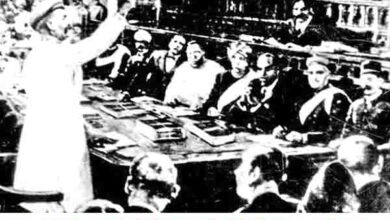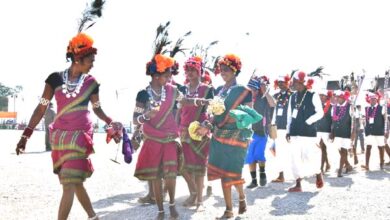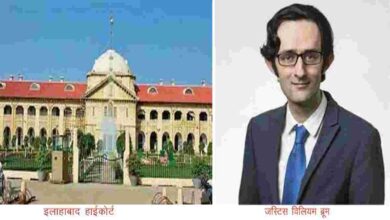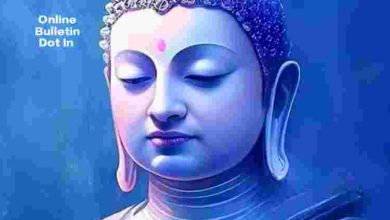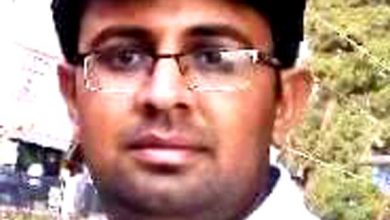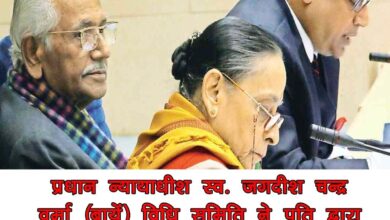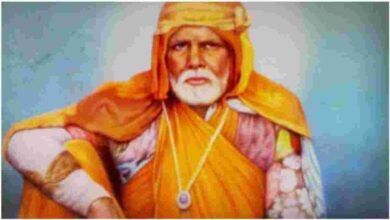मोदी सरकार द्वारा भूल सुधार भाग- दो modee sarakaar dvaara bhool sudhaar bhaag- do
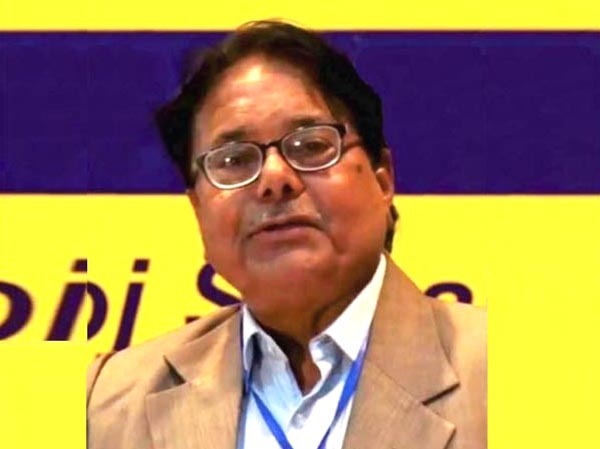
©के. विक्रम राव, नई दिल्ली
–लेखक इंडियन फेडरेशन ऑफ वर्किंग जर्नलिस्ट (IFWJ) के राष्ट्रीय अध्यक्ष हैं।
लोकतंत्र के आराधक नागरिकों को एटार्नी जनरल के.के. वेणुगोपाल के स्व. पिताश्री बैरिस्टर में मेलाथ कृष्णन नांबियार का अनायास स्मरण हो आता है। उन्होंने उच्चतम न्यायालय हो केरल के कम्युनिस्ट सांसद एके गोपाला की नेहरु सरकार द्वारा गैरकानूनी गिरफ्तारी के विरुद्ध मुकदमा लड़ा था। मूलाधिकारों की रक्षा हेतु यह आजादी के बाद का पहला अति महत्वपूर्ण मुकदमा था। सोली सोराबर्जा तथा न्यायामूर्ति वीआर कृष्ण अय्यर के शब्दों में नांबियार का तर्क बड़ा प्रभावी था। नागरिक स्वतंत्रता के पक्ष में सशक्त प्रस्तुतिकरण हुआ था।
इसीलिये आश्चर्य हुआ कि व्यक्तिगत अधिकारों के प्रबल हिमायती नांबियार के पुत्ररत्न वेणुगोपाल धारा—124(ए) ने कैसे पैरवी की होगी? नांबियार 18 दिसम्बर 1975 को निधन हो गया। वे इंदिरा गांधी द्वारा आपातकाल की घोषणा के कठोर आलोचक थे। यदि आज वे होते तो स्वयं धारा—124(ए) को उनके पुत्र वेणुगोपाल द्वारा समर्थन करने पर धज्जियां उड़ा देते।
यहां एक दस्तावेजी ऐतिहासिक घटना का जिक्र कर दूं। भारत के स्वतंत्र होते ही नागरिक आजादी पर प्रहार करने वाले ब्रिटिश कानूनों का कांग्रेस सरकार ने बड़े संवार कर लागू किया। प्रधानमंत्री बनते ही जवाहरलाल नेहरू ने ऐलान कर दिया था कि स्वाधीन भारत में ”सत्याग्रह अब प्रसंगहीन” हो गया हैं। उनका बयान आया था जब डा. राममनोहर लोहिया दिल्ली में नेपाली दूतावास के समक्ष इस हिमालयी हिन्दू राष्ट्र में लोकशाही के लिये सत्याग्रह करते (25 मई 1949) गिरफ्तार हुये थे। नेपाली वंशानुगत प्रधानमंत्री राणा परिवारवाले लोग नेपाल नरेश को कठपुतली बनाकर जनता का दमन कर रहे थे। ब्रिटिश और पुर्तगाली जेलों में सालों कैद रहनेवाले लोहिया को विश्वास था कि आजाद भारत में उन्हे फिर जेल नहीं जाना पड़ेगा। पर इस सत्याग्रह में उन्हें कैद के पूर्व नयी दिल्ली की सड़क पर अश्रुगैस तथा लाठी चार्ज का भी सामना करना पड़ा था। सविनय प्रतिरोध की कोख से भारत राष्ट्र उसी कोख को जन्में लात मार रहा था। अतः आजादी के प्रारंभिक वर्षों में ही यह सवाल उठ गया था कि सत्ता का विरोध, सार्वजनिक प्रदर्शन करना और सिविल नाफरमानी क्या लोकतंत्र की पहचान बनें रहेंगे अथवा मिटा दिये जायेंगे? सत्ता सुख लम्बी अवधि तक भोगने वाले कांग्रेसियों को विपक्ष में आजाने के बाद ही (1977) एहसास हुआ कि प्रतिरोध एक जनपक्षधर प्रवृत्ति है। इसे संजोना चाहिए। यह अवधारणा फिर अब विगत सात वर्षों में खासकर उभरी है, व्यापी हैं। जबसे कांग्रेस विपक्ष में आई है। चिंतक स्टुआर्ट मिल ने इसका वैचारिक आधार तथा प्रमाण रचा था जो अकाट्य और अनवरत रहा, जब उन्होंने कहा था कि निन्याबे लोगों को भी यह हक नहीं है कि किसी एक असहमत और भिन्न राय रखनेवाले व्यक्ति पर अपना मत लादें। विरोध का इस उक्ति से बेहतर तर्क नहीं मिलेगा।
ब्रिटेन में शिक्षित जवाहरलाल नेहरु ने सत्ता पाते ही इस सिद्धांत को मार डाला। मोदी को इसे याद रखना होगा। सम्यक पालन करना होगा।
मोदी सरकार द्वारा भूल सुधार भाग- एक modee sarakaar dvaara bhool sudhaar bhaag- ek
Correction of Mistakes by Modi Government Part-II
Attorney General K.K. Venugopal’s own Malath Krishnan Nambiar is suddenly remembered in Pitaashree Barrister. He fought the Supreme Court case against the illegal arrest by the Nehru government of AK Gopala, a Communist MP from Kerala. This was the first very important case after independence for the protection of Fundamental Rights. In the words of Soli Soraberja and Justice VR Krishna Iyer, Nambiar’s argument was very effective. There was a strong presentation in favor of civil liberties.
That is why one wondered how the strong advocate of individual rights, Nambiar’s son Ratna Venugopal would have advocated Section-124(A)? Nambiar died on 18 December 1975. He was a harsh critic of the declaration of Emergency by Indira Gandhi. Had he been there today, he himself would have blown up Article 124(A) for being supported by his son Venugopal.
Let me mention a documentary historical event here. As soon as India became independent, the Congress government implemented the British laws which attacked civil liberties. As soon as he became the Prime Minister, Jawaharlal Nehru declared that “Satyagraha is now contextless” in independent India. His statement came when Dr. Ram Manohar Lohia was arrested (25 May 1949) in front of the Nepalese Embassy in Delhi while conducting satyagraha for democracy in this Himalayan Hindu nation. The people of the Nepalese hereditary prime minister Rana family were suppressing the people by making the Nepal king a puppet. Lohia, who had been imprisoned for years in British and Portuguese prisons, was confident that he would never have to go to jail again in independent India. But in this Satyagraha, he had to face tear gas and lathi charge on the road of New Delhi before his imprisonment. From the womb of civil resistance, the nation of India was kicking the birth of the same womb. Therefore, in the early years of independence itself, the question arose as to whether opposition to power, public demonstrations and civil disobedience would continue to be the hallmarks of democracy or would they be abolished? It was only after the Congressmen, who enjoyed power for a long period, came to the opposition (1977) realized that resistance is a pro-people trend. It should be cherished. This concept has emerged again now, especially in the last seven years, is widespread. Ever since Congress came in opposition. The thinker Stuart Mill had created an ideological basis and proof of this which remained irrefutable and relentless, when he said that even ninety-nine people do not have the right to impose their opinion on a person who disagrees and has a different opinion. This statement of protest will not get a better argument.
Jawaharlal Nehru, educated in Britain, killed this theory as soon as he came to power. Modi has to remember this. Will have to follow suit.
मोदी सरकार द्वारा भूल सुधार भाग- एक modee sarakaar dvaara bhool sudhaar bhaag- ek




